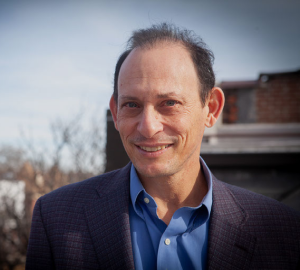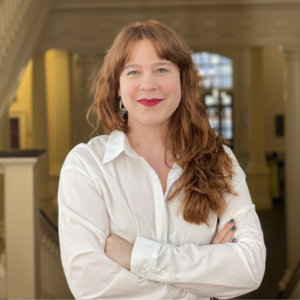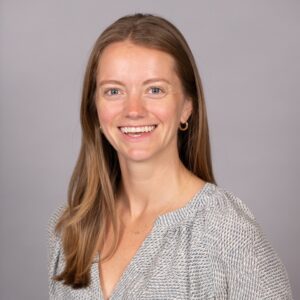In September 2020, 47 cities made commitments to new initiatives to support inclusive economic development and innovation at the Kauffman Mayor’s Conference on Entrepreneurship. NLC’s City Innovation Ecosystems program collects and tracks these commitments to showcase successes, identify best practices, and connect peer cities that can learn together. Here we share the story of one city’s work:
Like many ambitious young grads, Eric Parker couldn’t get away from his hometown fast enough — first to Atlanta for college at Georgia Tech, then west to Silicon Valley, where he spent more than a dozen years as an architect.
Parker eventually returned to his hometown of Augusta, a city of 195,000 on the South Carolina border that remains best known as host of The Masters golf tournament. The former builder of homes and offices now builds entrepreneurial ecosystems, leading the charge to develop, nurture and sustain small businesses and entrepreneurs.
Focusing those efforts on the country’s 127th-largest city rather than a major metro area, Parker and his colleagues at the Clubhou.se business incubator are recent recipients of a $250,000 grant from the state Partnership for Inclusive Innovation.
Their mission: leverage the success of the Augusta program in four other small- and mid-sized Georgia cities in 2021 via an effort known as Make Startups.
As part of the NLC’s 2020 City Innovation Ecosystems program, the entrepreneurship support organization (ESO) is collaborating with the city of Augusta’s Economic Development Authority and local colleges and universities to offer new business training and workforce development certification through the established Kauffman FastTrac curriculum.
While the greater Atlanta region has gained recognition as a Top 10 U.S. tech hub, the Clubhou.se Mesh Network will aim its resources at growing social innovation and access to capital among rural, minority and underrepresented Georgians. The four participating cities will be selected later this year via a competitive application process.
The network takes its name from the wireless technology that allows nodes to connect directly and non-hierarchically to as many other nodes as possible – a contrast to the hub and spoke model, which revolves around a central hub.
“Spokes don’t have connectivity and have a difficult time thriving,” Parker explains. “But in a mesh system, each point on the network operates as a collaborative node. It ultimately becomes a better experience for everyone who’s not in the hub.”
“For a long time, the rest of the state (outside Atlanta) has felt like the spokes.”
The network plans to provide training and certification to 250 entrepreneurs (50 in each selected community), an investment expected to generate 500 to 800 new jobs statewide.
That assistance will also extend to the local ESOs to ensure the participating start-ups remain connected with local advocates, rather than from a voice hundreds of miles away.
Working with a network of creditors, the three-month training program (followed by six months of mentorship) will offer those lenders a vote of confidence and seal of approval that their investment is backed by more than just hopes and dreams.
“How do you help more people get access to their first $25,000 of capital?” Parker says, describing the challenge. “I’ve worked with so many entrepreneurs who just need to find $3,000 to $10,000 to get their initial inventory – and they can’t. They just don’t have that access to capital.”
Augusta’s embrace of the innovation economy in recent years tracks with the concurrent growth of the U.S. Army Cyber Center of Excellence and U.S. Cyber Command, both at Fort Gordon, which in turn has fueled a rise in the city’s cybersecurity sector.
The Clubhou.se, founded in 2012, has similarly emerged as a leader in the city’s tech community, spurring the development of more than 100 businesses and 1,000 jobs. Parker is quick to note, though, that “startup” isn’t synonymous with “tech” – quite the contrary.
“Everybody tends to think in terms of, ‘Are you creating the next Google or Facebook or some big tech company,’” he says. “But 99 percent of what we do is supporting businesses with one to five employees.”
That 99 percent includes Jennifer Tinsley, owner of FIELD Botanicals, a cruelty-free skin care company with a downtown Augusta retail outlet as well a growing online presence.
A former local government planner focused on community development, Tinsley retired from that role in 2017, then launching the store and brand in October 2018 as a business which began in her kitchen grew into a full-time gig.
She credits the Augusta incubator, and fellow members of its startup community, with providing the support, mentorship and technical assistance needed to launch (and sustain) a small business on the eve of an unforeseen global pandemic.
“It was just invaluable — just being able to chat with other business owners,” says Tinsley, whose start-up won distribution deals with American Eagle and Urban Outfitters and has been featured in Vogue magazine. “So many entrepreneurs think they have to go it alone. They’re just in a bubble.”
Lessons from Augusta
- Startups are more than just tech. Georgia wants to be a hotbed of exciting new tech firms, but companies in other sectors will be critical to its growth as well. Augusta’s ecosystem of entrepreneurial support caters both to small, Main Street businesses and to companies in its burgeoning cybersecurity sector.
- Geographic inclusion, not “hub and spoke”. While there will always be an important economic relationship between Atlanta and Georgia’s smaller cities, Augusta and its like-sized city partners will collaborate on efforts to promote bottom-up, entrepreneurship-led economic development with a focus on social innovation, and racial and gender equity.
- Access to capital and mentors are key ingredients to new business formation. Underrepresented entrepreneurs often struggle to access pools of startup capital that people with accumulated personal or family wealth do. Augusta is identifying ways to make small, early investments in under-represented entrepreneurs’ ideas while providing them with access to experienced mentors.










